Friends of AHBIC
If you aren’t already a Friend of AHBIC, we welcome you to join our group of organisations and individuals who are supporting Australia’s national beekeeping industry that supports you.


If you aren’t already a Friend of AHBIC, we welcome you to join our group of organisations and individuals who are supporting Australia’s national beekeeping industry that supports you.
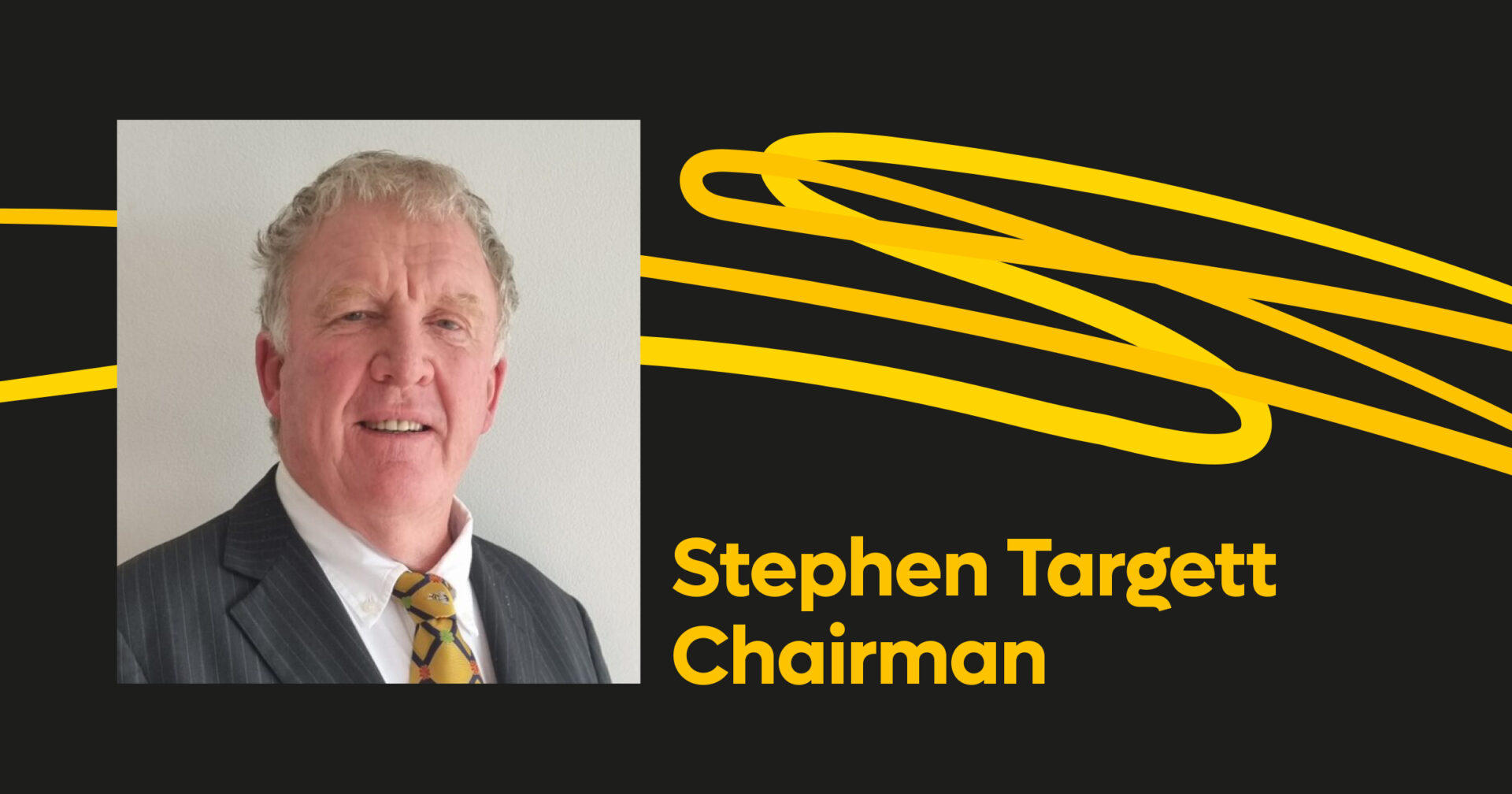
AHBIC continues to work hard for our industry through lobbying and meeting with ministers. One overlooked area is the numbers of meetings AHBIC attends to ensure positive outcomes for our industry and our levy monies. Meetings with PHA, DAFF, Agrifutures and DFAT to name a few. These meetings are time consuming over the course of a year. Add all the varroa related meetings and briefings since June 2022 and I am proud of AHBIC achievements outside the varroa area with limited resources.
Industry owes a huge thank you to our CEO – Danny for his diligence, work ethos and professionalism that made sure all these important events were attended and had valuable input from our industry. I also thank the member bodies and the executive for their time at meetings to provide guidance to the CEO throughout this challenging period.
I cannot stress enough the huge achievement it was to secure the Transition to Management plan for varroa over two years. A two year Transition to Management time frame has NOT been achieved for any other biosecurity response – and there have been quite a few. This was achieved by a lot of networking and lobbying by mainly Danny but also Bianca Giggins. A HUGE thank you to you both.
A recent members meeting agreed for AHBIC to conduct a congress in 2026. AHBIC is in the process of forming a congress organizing committee.
AHBIC continues to lobby against the 10% increase in our honey levy for the Border Biosecurity Levy that the Australian Government recently announced. AHBIC have joined most Agricultural industries in lobbying against this new tax.
Honey levies will be a point of discussion at all member body AGM/conferences this year. Our industry is required to pay back our share of the varroa response. Member bodies at an AHBIC members meeting have agreed to increase our honey levy by 1c/kg until the debt is paid off. Part of the formal process to increase the levy and repay the monies includes consultation with industry. The first part of this wide consultation will be at member body AGM/conferences.
To that end all beekeepers should be supporting their state conferences to get the latest information on varroa AND have a say on the proposed levy increase.
DO YOU WANT TO KNOW WHAT IS HAPPENING IN YOUR INDUSTRY?
I urge you to subscribe to the AHBIC newsletter AND your state association newsletter/magazine.
Stephen Targett
Chair

Since the February newsletter AHBIC has been focused on biosecurity issues. Working hard towards establishing the transition to management program, contributing to the WA red dwarf honey bee response and acting as ILO in the Brisbane Asian honey bee response.
Despite biosecurity consuming most of our time we have been progressing other critical industry issues.
This committee has met to discuss what can be done about this issue and provided a list of tasks for AHBIC to complete. We have gathered nearly 40 imported honey samples from shelves across Australia and we are preparing them to be tested. AHBIC has met with specialty international trade lawyers to discuss imported product and what can be done from a countervailing perspective. In addition to this internal activity, we have also met with the Australian Federal Agricultural Department to lobby for more comprehensive testing and provided insight into the imported honey testing project.
There is still work to be done on this issue and we are progressing as fast as possible with the resources we have.
We have now officially gained access to export markets in Vietnam for Australian honey. Whilst some honey was being exported to Vietnam it was through the unofficial ‘grey’ channels that offer little protection to Aussie exporters. Formalising this export pathway gives both exporters and importers greater confidence and hopefully we will see increased volumes of Aussie honey going to Vietnam.
This took a lot of work from AHBIC working with AusTrade and the Vietnam authorities to agree to specific import conditions. We are still working on Indonesia and Morocco to formalise their entry conditions. Australia is now exporting the lowest amounts of honey since the 1960’s, contributing to some of the current over supply within our own country.
AHBIC is chairing the International Standards Organisation working group for honey bee products. This group has been meeting regularly to assess and provide comment on the international proposed standards and progress the Australian standards. A standard for Royal Jelly has been circulated for public comment and will be soon presented to the AHBIC member bodies for endorsement. We expect this to be the first in a series of standards for industry to consider.
Final agreement was reached in early February to the national transition to management plan. This long-awaited agreement enables training to be rolled out and extension officers to be recruited. We expect to start seeing training opportunities across NSW with the other jurisdictions to follow soon.
The roll out of the training will be over the next 12 months so I encourage all beekeepers to attend a training workshop whilst they are free. There will also be a continual flow of additional resources for beekeepers throughout the transition to management plan.
There are now 26 colonies detected on the Burrup peninsula in the north of WA, all within a 2km radius. There are 11 absconded nests found, indicating potential swarming activity. All colonies have had Euvarroa present, but no Euvarroa has been found on European honey bees to date. All colonies destroyed have also tested negative for exotic viruses.
This new detection in Brisbane was the result of a single mite being found in a European sentinel hive at the port. The response has now found a single Asian Honey Bee colony in close proximity to the original sentinel hives. Testing has confirmed v. jacobsoni present in the Asian colony and further surveillance of European colonies including the remaining sentinel hives has failed to find any further v. jacobsoni in those hives. This hopefully indicates that the original single mite detection was a result of drift/transfer and not host shifting as originally feared.
Further surveillance around the port and within a 10km radius will be conducted to ensure the area is free of both Asian Honey Bees and v. jacobsoni.
Our Chair will be travelling to Canberra to attend the Parliamentary friends of Biosecurity at Parliament house hosted by television celebrity Costa Georgiadis. This will be a great opportunity for AHBIC to network with members of parliament and ministers to further lobby for better outcomes for our industry.
Another senate inquiry has been announced for the Biosecurity Protection Levy and AHBIC will providing a submission opposing the new tax. AHBIC will leverage the strength of numbers in the growing group of collective voices from primary industries in opposition to the new tax.
We are hopeful to make good progress on a few of the projects in the transition to management plan that AHBIC is responsible for including the coordination of the extension officers nationally, updating the CoP and establishing a Coloss survey for industry.
Towards the end of the month AHBIC will participate in a some AgriFutures events including the R&D forum in Canberra and the levied industry forum in Sydney. These are great opportunities for AHBIC to further our industry messaging but also to network with like-minded industries at the levied industry forum and the many researchers working in the varroa space.
Regards
Danny LeFeuvre
AgriFutures Australia currently has an opportunity for individuals involved in one of our levied, emerging or agtech industries to participate in the Australian Institute of Company Directors, and for the first time, the Foundations of Directorship course.
AHBIC encourages leaders from our Member bodies and those willing to upskill in governance to read further and apply.
Designed to ensure that participants not only understand their roles and responsibilities, but also improve their contributions to Board performance.
Course commencement date: Monday, 3 June 2024
Location: Face to Face at 15 National Circuit Barton, ACT.
| Monday, 03 June 2024 | Day 1 Course commencement |
| Tuesday, 04 June 2024 | Day 2 |
| Wednesday, 05 June 2024 | Day 3 |
| Thursday, 06 June 2024 | Day 4 |
| Friday, 07 June 2024 | Day 5 Course conclusion |
Designed for new and aspiring directors, senior executives, and managers wanting to gain a foundational knowledge of the duties and responsibilities of boards and directors.
Course commencement date: Tuesday, 28 May 2024
Location: Face to Face at 15 National Circuit Barton, ACT.
| Tuesday, 28 May 2024 | Day 1 Course commencement |
| Wednesday, 29 May 2024 | Day 2 |
| Thursday, 30 May 2024 | Day 3 Course conclusion |
Designed for new and aspiring directors, senior executives, and managers wanting to gain a foundational knowledge of the duties and responsibilities of boards and directors.
Course commencement date: Tuesday, 7 May 2024
Location: Online
| Tuesday, 07 May 2024 | course commencement & faculty induction session |
| Tuesday, 21 May 2024 | first virtual classroom |
| Tuesday, 28 May 2024 | second virtual classroom |
| Tuesday, 04 June 2024 | third virtual classroom |
Applications for the next round of AgriFutures-funded course positions are now open!
![]()
Click Here to go to the Webpage!
Sheridan Ingold
Manager, Capacity Building
Email: sheridan.ingold@agrifutures.com.au
Phone: 0438 921 421
Emily Jones
Coordinator, Capacity Building and evokeAG
Email: emily.jones@agrifutures.com.au
Phone: 0455 980 310
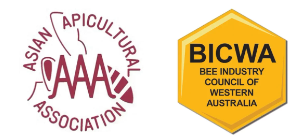
Bee experts and enthusiasts from across Asia will gather to discuss and see the latest discoveries and technologies from across the region. With an expectation of up to 400 delegates, sponsors, and bee enthusiasts, this event is not to be missed.
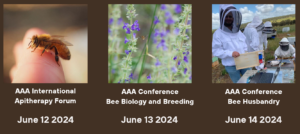
Wednesday 12th June: AAA international Apitherapy Forum
Thursday 13th June: AAA Conference – Bee Biology and Breeding
Friday 14th June: AAA Conference – Bee Husbandry
Having previously hosted the 8th AAA Conference in 2006, Perth welcomes you to be part of this significant event once again.
Founded in 1993 and based in Beijing, China, the Asian Apicultural Association (AAA) is led by Prof. Siriwat Wongsiri, from Thailand. With over 20 member countries, AAA facilitates communication among bee scientists and beekeepers across Asia. AAA has organised conferences for global collaboration in bee sciences, aiming to enhance research, improve beekeeping practices, and raise awareness about the vital role of bees in pollination and ecosystem preservation.
The deadline for reduced conference fees is 31 March so get in quick.
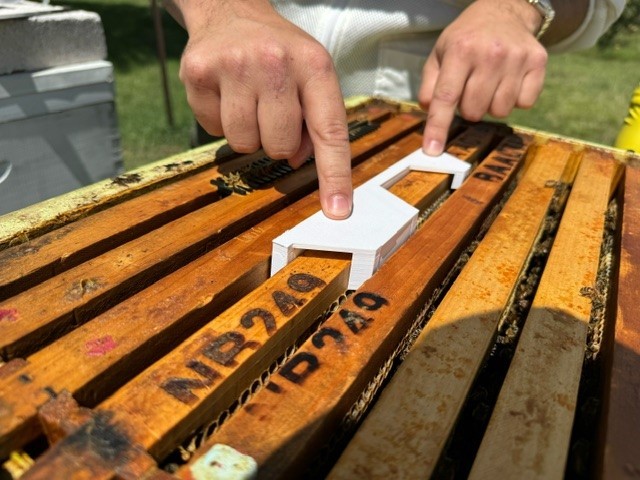
In response to the recent varroa mite outbreak, the Catalysing Australia’s Biosecurity (CAB) initiative is leading a cutting-edge partnership between the Australian Capital Territory Government, Queensland Department of Agriculture and Fisheries, University of Canberra and CSIRO, to detect varroa mites – a danger to honeybees across the globe.
A new low-cost technology, BeeRight, has been shown to detect varroa mites in beehives in New Zealand and could be the solution to slowing the spread of this destructive pest.
If varroa mites establish in Australia’s honeybee population, pollination activities would be significantly reduced, posing an extreme risk to Australia’s food security.
BeeRight technology is an Internet of Things solution that can be set up in any hive without damaging the hive or bothering the bees. The technology has the potential to monitor for:
Two pilot programs targeting varroa mite, and co-funded to the tune of $130,000 under the Catalysing Australia’s Biosecurity (CAB) initiative, are due to begin in the coming months.
The programs come as the national management group for varroa destructor, which includes governments and industries, endorsed plans to move from an eradication response to a national transition to management in February.
The ACT pilot is a collaboration between the Department of Agriculture, Fisheries and Forestry (DAFF), CSIRO, the ACT Government and University of Canberra (UC). It will use a citizen science approach to trial Vimana Tech’s BeeRight technology and use environmental DNA (eDNA) with up to 30 local backyard beekeepers/hobbyists in the ACT region.
The NSW pilot is a collaboration between DAFF, CSIRO, Queensland’s Department of Agriculture and Fisheries and UC. It will also use the BeeRight technology and eDNA on known hives infected with varroa mite in NSW. There will also be a citizen science component like the ACT approach.
First Assistant Secretary of Biosecurity Strategy and Reform Bronwen Jaggers said the pilots provided a unique opportunity to test the technology and how it could best be used in urban and peri-urban areas.
For more information email innovationpilots@aff.gov.au.
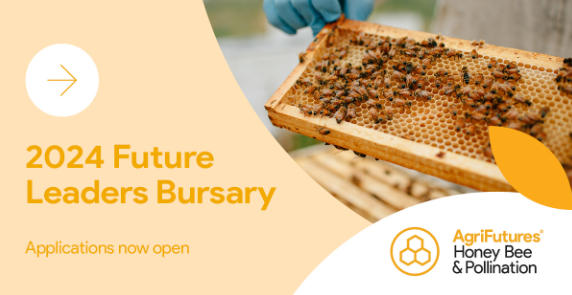
The AgriFutures Honey Bee & Pollination Program 2024 Future Leaders Bursary, valued at a maximum of $2,100, is a unique opportunity for young beekeepers, scientists, and aspiring individuals is now open.This is a pilot program that is being run across NSW, QLD, WA, and VIC. If successful, the AgriFutures Honey Bee & Pollination Program hope to offer this bursary across all states in 2025.This exclusive bursary grants recipients the opportunity to attend their respective state beekeeping association conferences, presenting an invaluable chance to advance their careers in beekeeping.With one bursary available for each state, successful applicants will not only benefit from financial support but also gain access to numerous networking opportunities with industry experts.To be eligible, applicants should be:
This bursary serves as a gateway for individuals to establish a solid foundation in the honey bee industry.Applications close Monday, 15 April 2024 at 12 noon AEST.For more information visit the Honey Bee & Pollination 2024 Future Leaders BursaryFor any queries or concerns, please contact:Mia Lorber-HughesCoordinator, Levied and Emerging Industries – Honey Bee & Pollinationmia.lorber-hughes@agrifutures.com.au
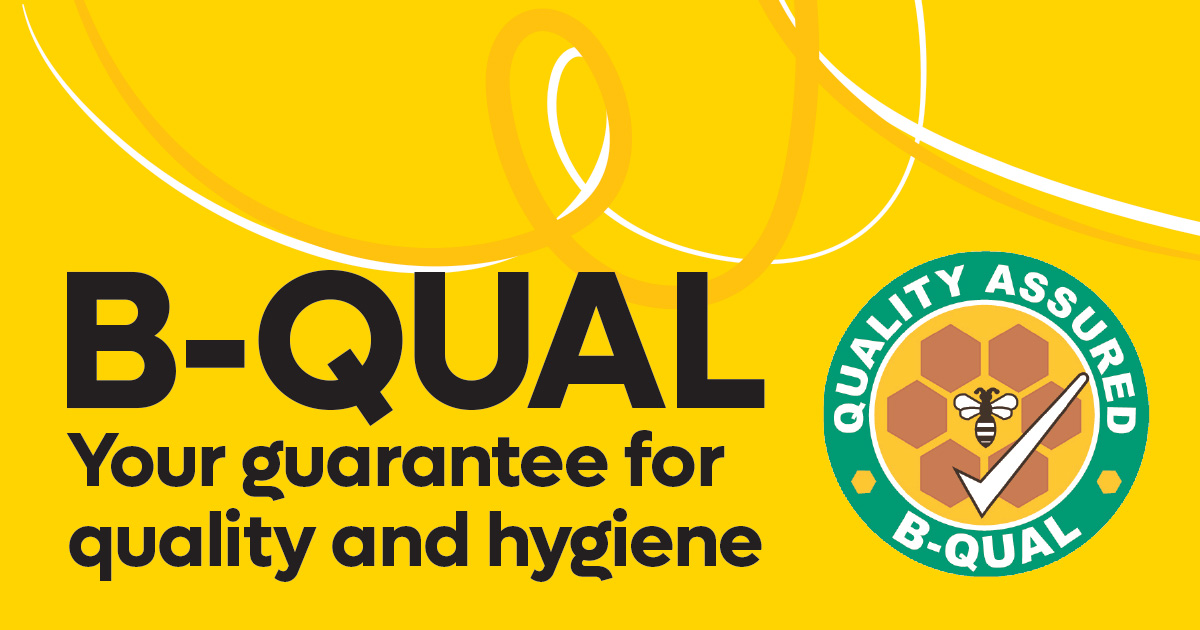
B-QUAL is an Industry Owned Quality Assurance System for Australian beekeepers.
How does B-QUAL certification benefit my business?
B-QUAL Certification also enables an enterprise to market its product under the B-QUAL logo to show that it meets the B-QUAL Industry Standards.
Complete your training at home at your own pace.
For more information and to obtain a Certification Information Pack, contact the B-QUAL Certification team.
www.bqual.com.au
B-QUAL Pty Ltd
Phone 07 49949820
Email: admin@bqual.com.au
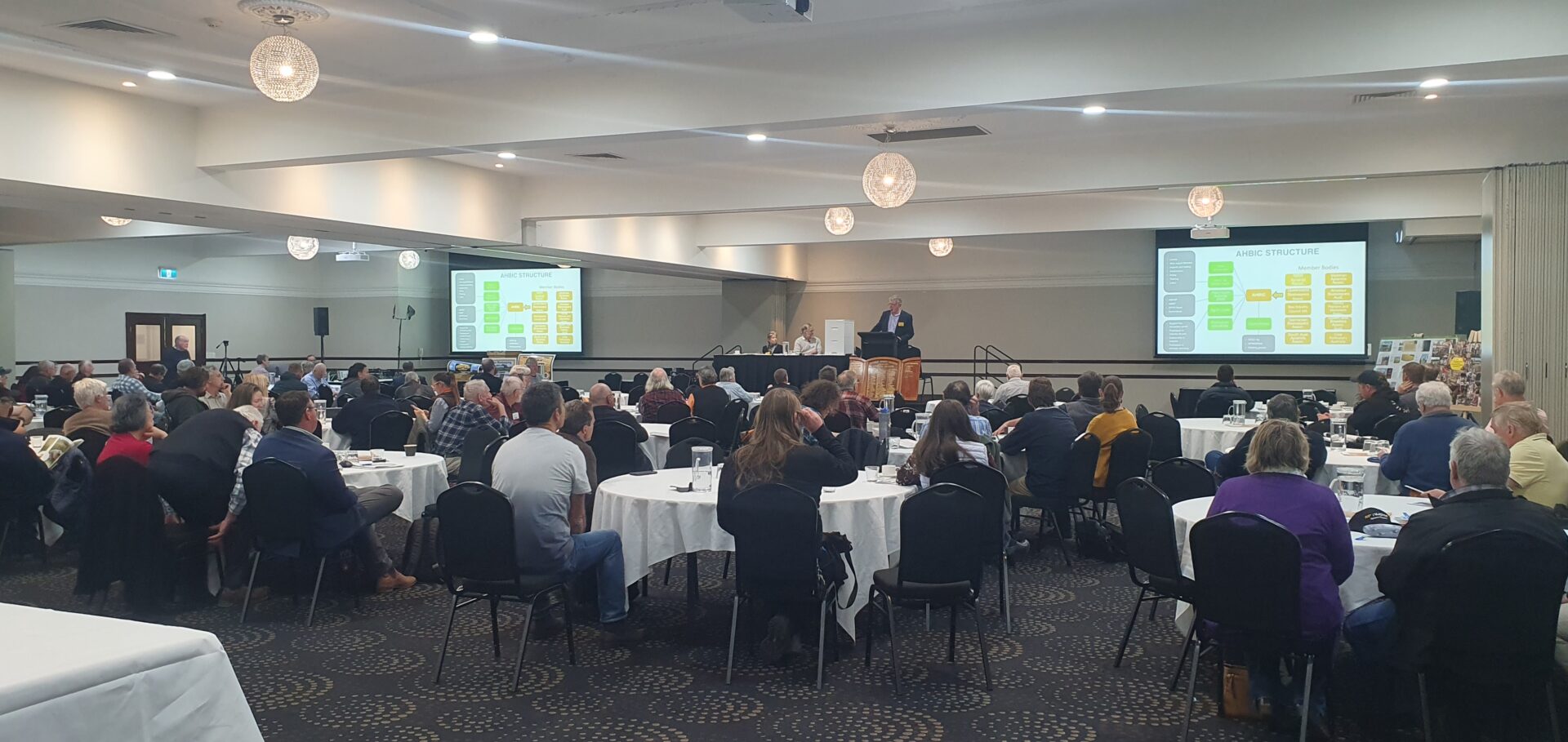
Set your calendars, find your state association and member body below, make sure to support your annual conference.
| Association | Date |
| New South Wales Apiarists Association | 23 & 24 May – Wagga Wagga, NSW |
| Tasmanian Beekeepers Association | 31 May & 1 June – Launceston, TAS |
| Queensland Beekeepers Association | 11 & 12 July – Townsville, QLD |
| South Australian Apiarists Association | TBA |
| Victorian Apiarists Association | 4th, 5th and 6th of June-Wonthaggi, VIC |
| Australian Honey Bee Industry Council – AGM | 10th July – Townsville, QLD |
| Honey Packers and Marketers Association | TBA |
| Australian Queen Bee Breeders Association | TBA |
| Bee Industry Council of WA
17th Asian Apiculture Association Conference and AAA Apitherapy Forum 2024 |
Field Day Only in 2024, TBA
12 – 14 June 2024 – Esplanade Fremantle, Perth WA |
| Crop Pollination Association of Australia Inc. | 22 May 2024, Wagga Wagga, venue TBA |